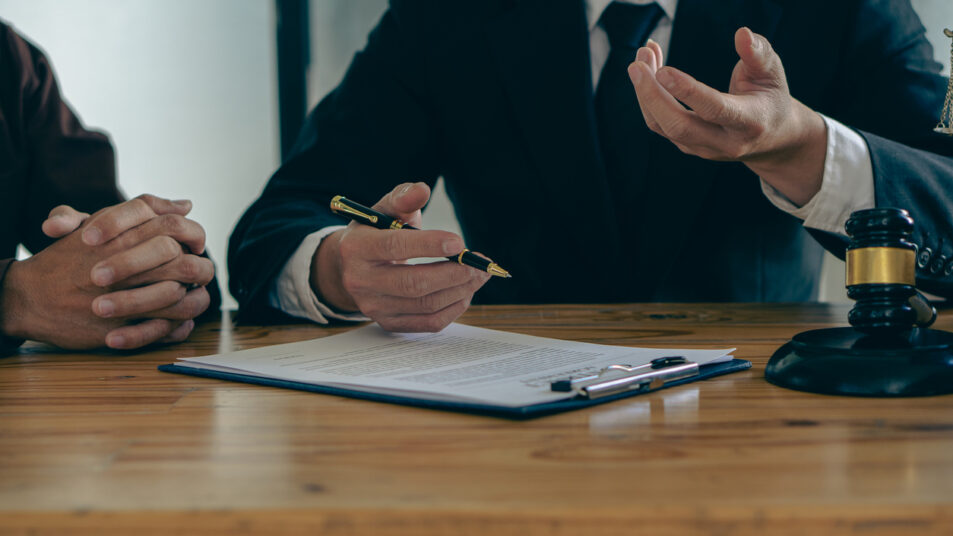Can an Employee Be Fired for Causing an Accident on the Job?
Arizona is an at-will state for employment. Generally, an employer can fire a worker for any reason, including causing an accident on the job. However, the termination must comply with the law and cannot be retaliatory or otherwise unlawful. The termination cannot be discriminatory, such as firing an employee for the sole reason that they are disabled.
Being Fired for Discrimination After a Workplace Accident
Your employer may have the right to fire you if a workplace accident results in a disability that prevents you from performing your job duties. However, the Americans with Disabilities Act (ADA) requires employers to make reasonable accommodations for an employee with a disability. Therefore, if your employer fires you when you can perform your job duties or fails to make reasonable accommodations, it could be a wrongful termination lawsuit.
Retaliatory Termination After Filing for Workers’ Compensation
Even though an Arizona employer can fire an at-will employee without providing a reason, it could be a wrongful termination if it is in retaliation for applying for workers’ compensation benefits. Workers’ compensation insurance is a no-fault system. Even if an employee causes an accident at work, they can receive workers’ compensation benefits if they qualify for workers’ comp.
What Is Wrongful Termination in Arizona?
Arizona Revised Code §23-1501 defines wrongful termination as firing an employee in:
- Violation of an employment contract
- Retaliation against an employee for exercising their civil rights
- Violation of a state statute, federal law, the Arizona Constitution, or the Civil Rights Act
Employers will claim they had a valid reason to fire an employee or were within their rights under at-will employment laws to terminate an employee. They will not admit they terminated the employee for reasons that would violate the employee’s rights or the law. Therefore, the employee needs evidence proving the termination violated the law.
What Can an Employee Do if They Are Fired After Causing an Accident on the Job in Phoenix, AZ?
If you are fired after causing an accident at work, talk with an employment lawyer. An attorney can review the circumstances surrounding your termination to determine if your employer violated one or more laws. Because there are deadlines for filing claims against employees, it is wise to speak with an attorney as soon as possible.
For example, you only have 180 days to file a claim for wrongful termination with the Arizona Civil Rights Division. The deadline for filing a Claim with the U.S. Equal Employment Opportunity Commission (EEOC) is 300 days. State law sets a one-year deadline for filing a breach of contract lawsuit for wrongful termination.
Gather as much evidence as possible to provide to the attorney. Evidence includes, but is not limited to, performance reviews, letters of termination, employment records, names of witnesses, emails, memos, and other documents related to your job or termination. The more information you can provide to an attorney, the better for your case.
What Damages Could I Receive for a Wrongful Termination After a Workplace Accident?
A wrongful termination claim could entitle you to damages for the losses and harm caused by being wrongfully fired from your job. The types of damages you could receive include:
- Loss of employment benefits
- Medical expenses, if applicable
- Back pay and lost wages
- Counseling costs
- Diminished earning capacity and loss of future career opportunities
- Emotional distress and trauma
- Attorney’s fees and court costs, if allowed by statute
- Expenses associated with searching for a new job
- Pain and suffering
The damages received for wrongful termination depend on the factors of your case, including the reason for the wrongful termination claim. Some laws specify the types of damages you can receive for a wrongful termination claim.
Steps to Take After a Workplace Accident in Arizona
You should report the accident to your employer and seek medical treatment for your injuries as soon as possible. You may be entitled to workers’ compensation benefits, including medical treatment and loss of income benefits. Keep detailed records of all communication with your employer regarding your accident and injuries.
If you believe your employer violated your rights by terminating you after an accident at work, talk with an employment lawyer. An attorney can evaluate your case and advise you of your legal options for pursuing a claim for wrongful termination.


